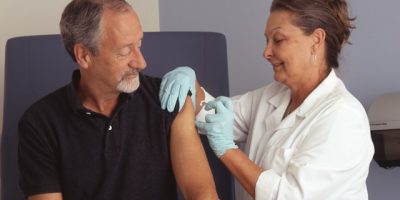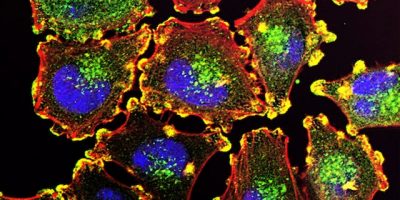Dr Anmol S Kapoor, MD FRCPC (C), Founder and CEO, BioAro Inc Canada) www.BioAro.com
Real-time genomics refers to the ability to analyze and interpret genetic data in near real-time, allowing healthcare providers to make informed decisions quickly and accurately. This capability is made possible by advancements in high-throughput sequencing technologies, computational biology, and artificial intelligence. By harnessing the power of these tools, clinicians can now access a wealth of genomic information with unprecedented speed and precision. From personalized pharmacogenomics to dynamic microbiome analysis, real-time genomics holds the key to optimizing patient care and improving health outcomes.
One of the most compelling reasons for the adoption of real-time genomics in precision health is its potential to revolutionize cancer care. Cancer is a complex and heterogeneous disease, with each patient’s tumor possessing a unique genetic profile. Traditional treatment approaches often rely on one-size-fits-all protocols, leading to suboptimal outcomes and unnecessary side effects. Real-time genomics offers a paradigm shift by enabling oncologists to identify specific genetic mutations driving cancer growth and tailor treatments accordingly. This personalized approach not only improves survival rates but also minimizes toxicity and enhances quality of life for cancer patients.
Real-time pharmacogenomics, a subset of precision medicine, focuses on how an individual’s genetic makeup influences their response to medications. By analyzing genetic variations in real-time, healthcare providers can predict how patients will metabolize certain drugs and anticipate potential side effects before they occur. This proactive approach to medication management not only minimizes the risk of adverse reactions but also enhances treatment efficacy by ensuring patients receive the most appropriate medication at the right dosage.
Consider the case of Fatima, a 55-year-old woman admitted to the hospital for heart surgery. Before the procedure, Fatima undergoes real-time pharmacogenomic testing to assess her genetic predispositions to drug metabolism. The results reveal that Fatima has a genetic variant associated with reduced efficacy of a commonly prescribed blood thinner. Armed with this information, Fatima’s healthcare team adjusts her medication regimen to account for her genetic profile, reducing the risk of blood clots while minimizing the potential for excessive bleeding—a critical consideration during surgery.
In addition to pharmacogenomics, real-time microbiome analysis offers invaluable insights into the complex ecosystem of microorganisms that inhabit the human body. The microbiome plays a crucial role in maintaining overall health, influencing everything from digestion and immune function to mental well-being. By monitoring changes in the microbiome in real-time, healthcare providers can identify imbalances or dysbiosis that may contribute to various health conditions and tailor interventions accordingly.
Imagine a scenario where Fatima, a 55-year-old Woman with recurring digestive issues, undergoes real-time microbiome analysis as part of his diagnostic workup. The analysis reveals an overgrowth of harmful bacteria in Fatima’s gut microbiome, which may be contributing to his symptoms. Armed with this information, Fatima’s healthcare team recommends targeted probiotics and dietary modifications to restore balance to his microbiome and alleviate his digestive discomfort—a personalized approach to treatment that addresses the root cause of his condition.
In the context of hospital care, real-time genomic technologies have the potential to streamline clinical decision-making and improve patient outcomes. By integrating real-time genomic analysis into AI powered electronic health records and clinical workflows, such as BioEMR, healthcare providers can access actionable insights at the point of care, facilitating rapid and informed decision-making. From selecting the most effective medication to guiding surgical interventions, real-time genomics empowers clinicians to deliver personalized care tailored to each patient’s unique genetic profile.
As we embrace the era of precision medicine, real-time genomics represents a paradigm shift in healthcare, offering unparalleled opportunities for precision health and personalized medicine. From accelerating disease diagnosis and treatment to empowering individuals to take proactive control of their health, the integration of real-time genomic technologies holds the key to unlocking a future where healthcare is truly tailored to the individual.
As we continue to advance our understanding of the human genome and harness the power of real-time genomics, the promise of precision health becomes an achievable reality, transforming the way we diagnose, treat, and prevent disease.
Read More: Monitoring Your Health with Hematology Profile Blood Test














Comments